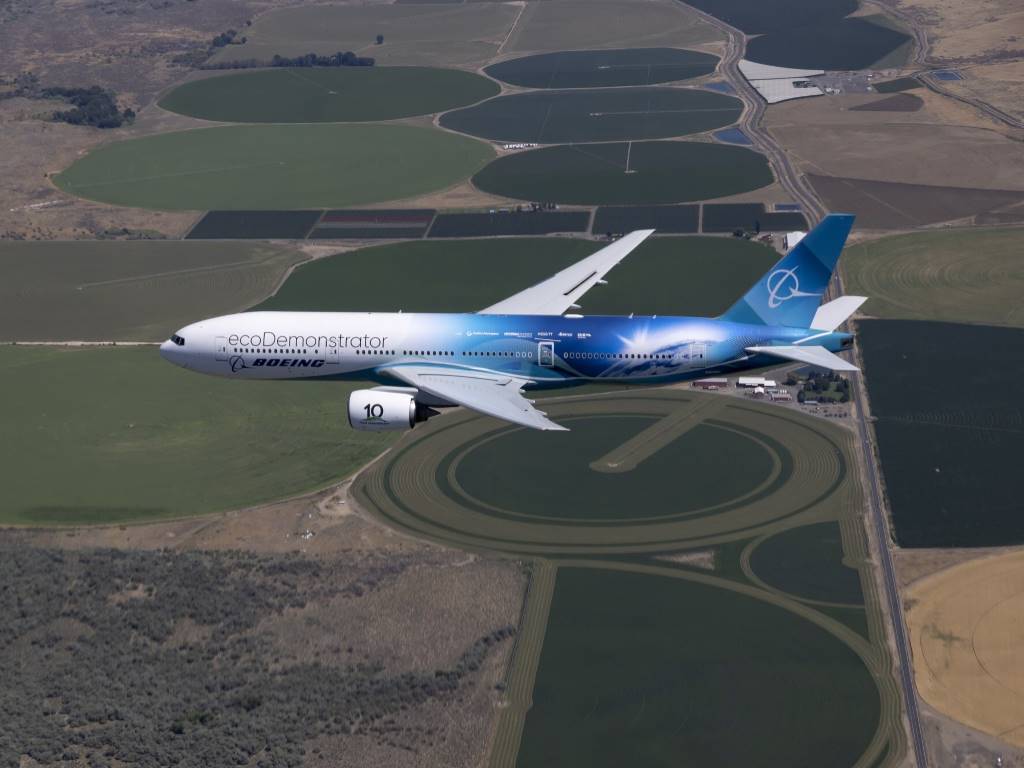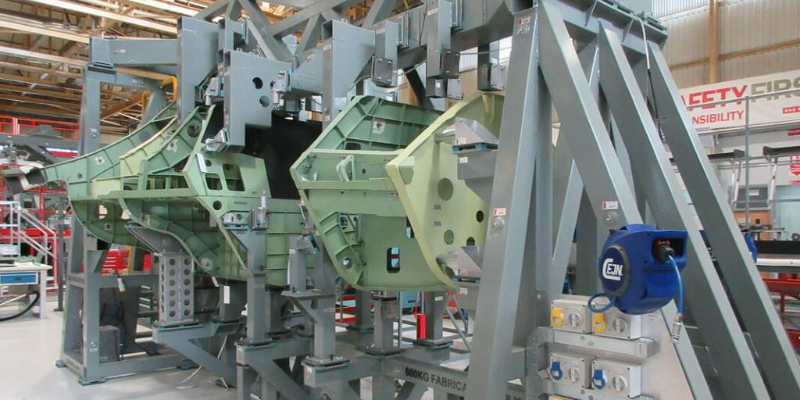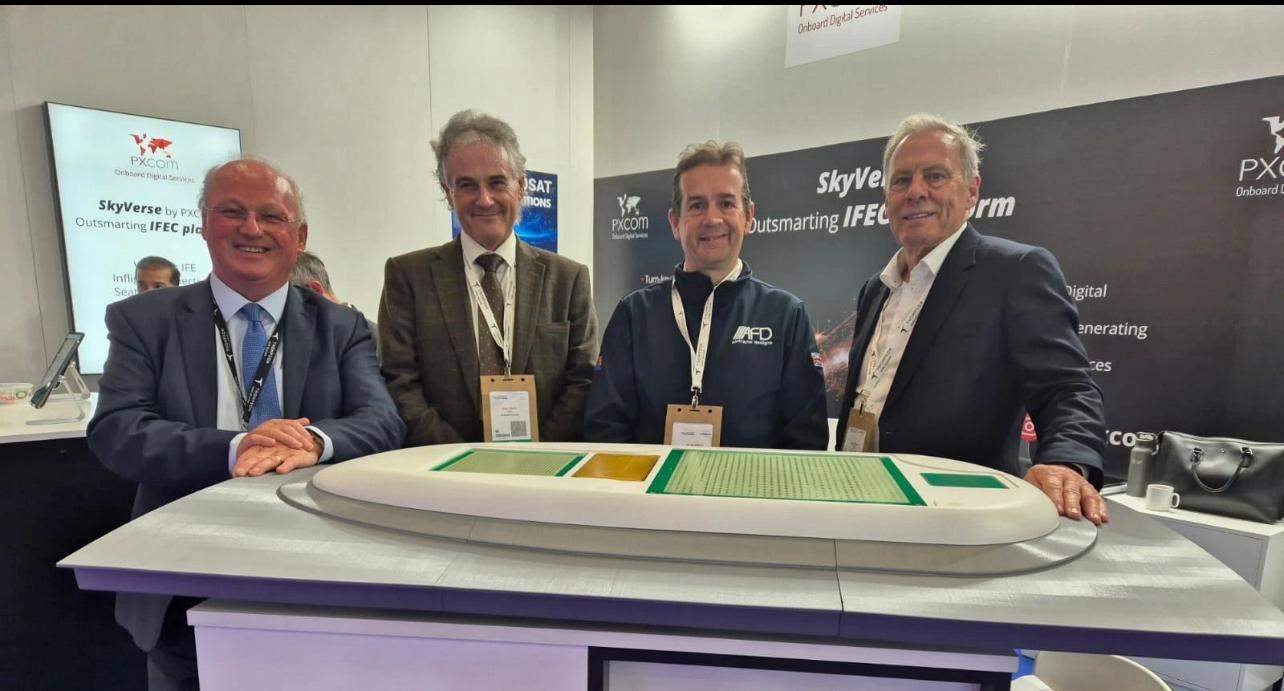
Location, location, location
14th Jun 2023 | In News | By Mike Richardson
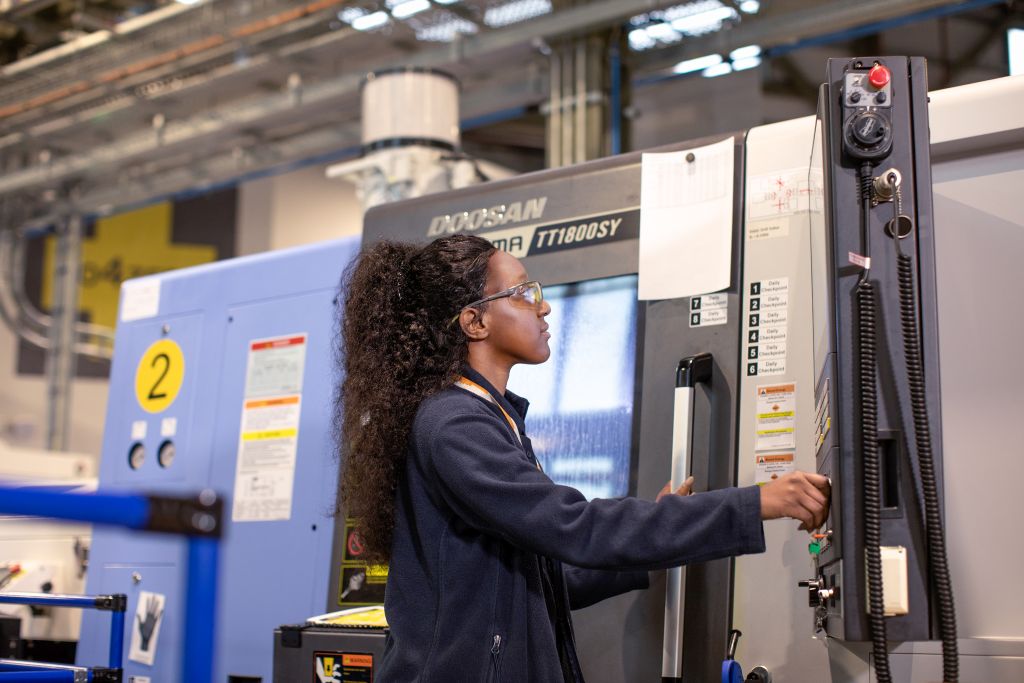
Helping drive the UK aerospace sector’s economic growth and innovation, Boeing’s Sheffield factory reflects on almost half a decade in South Yorkshire.
Boeing’s Sheffield factory will celebrate its fifth anniversary this year, marking a significant milestone for the company's presence in South Yorkshire. The £40 million factory opened in 2018 to manufacture components for trailing edge actuator systems for aircraft. Since then, the factory has shipped more than 13,500 of these parts for the 737.
Boeing’s ties to South Yorkshire stretch back even further to 2001, when it co-founded the Advanced Manufacturing Research Centre (AMRC) with the University of Sheffield. The research and innovation campus was launched to unite academia and industry and has played a central role in creating the region's manufacturing and innovation ecosystem - making South Yorkshire a natural choice for Boeing to open its first European manufacturing site.
“Having the opportunity to prototype, develop, experience and do the research and development collaboration with partners such as the ones we have here in Sheffield, through the AMRC, is a powerful differentiator and one we’re very proud of,” says Maria Laine, president of Boeing in the UK, Ireland and Nordic region. “We have a long history with the local community, more than 20 years of great work, culminating with the construction of the Boeing Sheffield factory, and we are now looking to the next generation of technology and digital engineering methods, assessing not only what we produce but how we produce it.”
Driving UK economic growth
Boeing Sheffield employs more than 100 people, and the team continues to grow. The company is committed to supporting and growing its UK supply chain, particularly SMEs, and all suppliers to the factory are based within 100 miles of Sheffield.
The site also offers apprenticeships and training opportunities, with 30 apprentices trained so far in partnership with the AMRC Training Centre and another cohort recently launched. During the apprenticeship they are trained in all disciplines of machining, including milling and turning along with general hand fitting skills. A range of cutting-edge equipment is used to produce parts, including operating complex machinery.
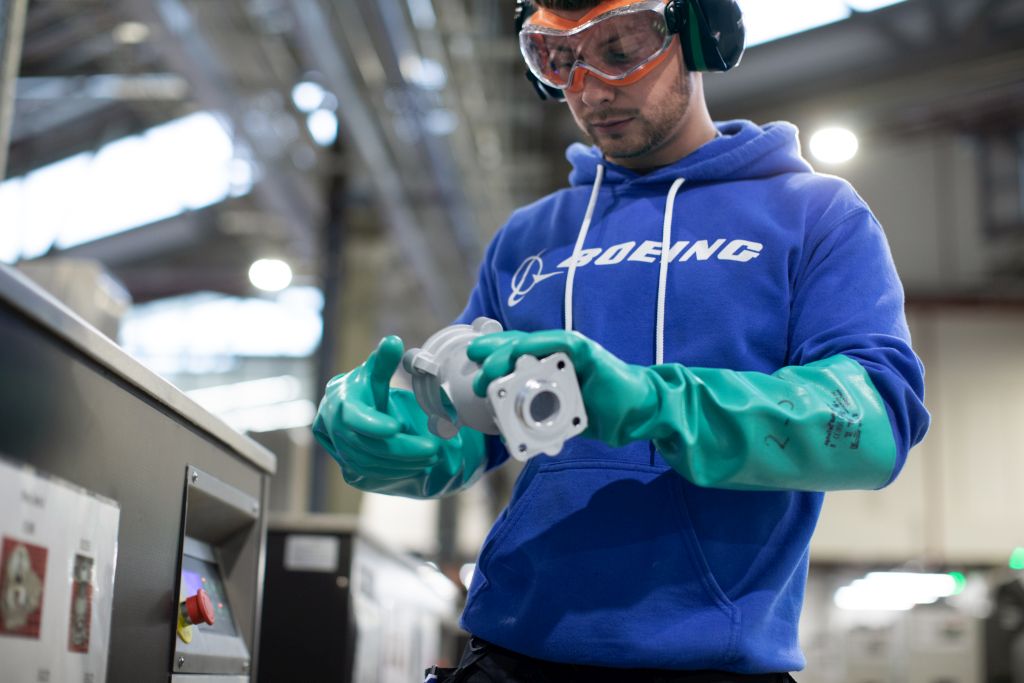
“When we look at where we want to be located and where the Boeing company wants to grow, it’s important to have that ecosystem to tap into - and that’s what we’ve found with Sheffield,” adds Laine.
In terms of manufacturing innovation, the Sheffield factory is a prime example of how Boeing is embracing multiple advanced manufacturing techniques to strengthen production systems and deliver on commitments to product quality and safety. The factory uses digitally-enabled devices to create a safe work environment and achieve high-quality work, and was the first Boeing facility to use an operations management system that reduces touch time and complexity for operators while providing live machine performance data to industrial engineering.
The site is also the UK home for Boeing Research and Technology (BR&T), which works closely with the University of Sheffield on various projects, including novel additive manufacturing, which aims to increase efficiency throughout the aerospace supply chain. Moreover, Boeing has continued to expand its presence in the area, becoming the founding member of the University of Sheffield's Energy Innovation Centre (EIC) to help produce and scale the production of Sustainable Aviation Fuel (SAF).
Boeing’s fifth anniversary in Sheffield marks a significant milestone for the company's presence in South Yorkshire. The factory has not only contributed to the local economy but also offered training and apprenticeships for young people while driving research and development in the aerospace industry.
Consider a free digital subscription
If you find this article informative, consider subscribing digitally to Aerospace Manufacturing for free. Keep up to date with the latest industry news in your inbox as well as being the first to receive our magazine in digital form.



